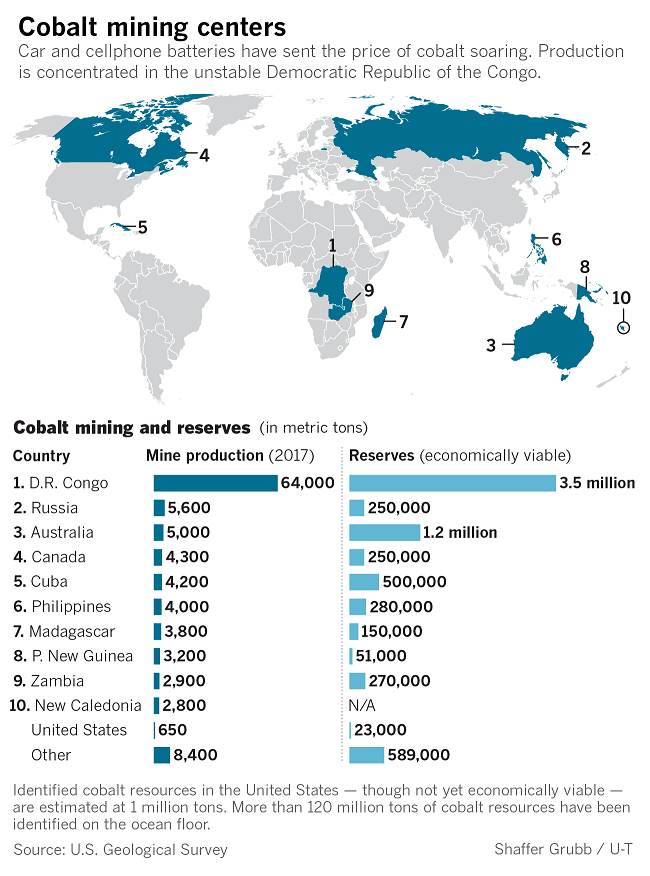Wall Street Journal: Mining Cobalt in the Congo is Still Dirty and Dangerous
As we’ve written before, cobalt is an important component of the batteries used in smartphones, laptops, and electric cars, and Minnesota has the largest deposits of cobalt in the United States. In fact, just three of the several copper-nickel deposits in the Duluth Complex of Minnesota hold 47 percent of U.S. cobalt resources.
However, we are not currently developing these resources, which leaves us heavily dependent upon the cobalt mined in the Democratic Republic of the Congo, where as many as 40,000 children have been employed in mining cobalt.

The Wall Street Journal had a video on their website explaining that despite promises by tech companies such as Apple and Volkswagen to do a better job of sourcing their cobalt to ensure children were not employed in the mines. You can read the article below:
Despite Cleanup Vows, Smartphones and Electric Cars Still Keep Miners Digging by Hand in CongoApple, Volkswagen and other global manufacturers that vowed to make sure children and miners were not working under dangerous conditions digging up minerals used for batteries have largely failed in their efforts, write WSJ’s Scott Patterson and Alexandra Wexler.Many firms said they would audit their suppliers and send teams to Congo to fix the problem after Amnesty International reported two years ago that the cobalt in some of their batteries was dug up by Congolese miners and children in inhumane job sites.Still, at a cobalt mine named Mutoshi in Kolwezi, freelance Congolese workers known as creuseurs—French for miners—could be seen in May descending underground without helmets, shoes or safety equipment. The mine’s owner is part of the global cobalt supply chain for companies including Apple and VW.Miners there were using picks, shovels and bare hands to unearth rocks rich with the metal. Water sometimes rushes into holes and drowns miners, and an earth mover buried one alive last year, said local creuseurs and mine officials.“Of course, people die,” said Christian Schöppe, then acting chief executive of the Mutoshi mine’s owner, Chemaf SARL, in May. “This is really shitty work.”
This begs the question, would Minnesotans rather buy their cobalt from unscrupulous mine owners in the Congo, or know the batteries in their smartphones and laptops contain ethically sourced cobalt from right here in Minnesota.
This shouldn’t be a hard decision.